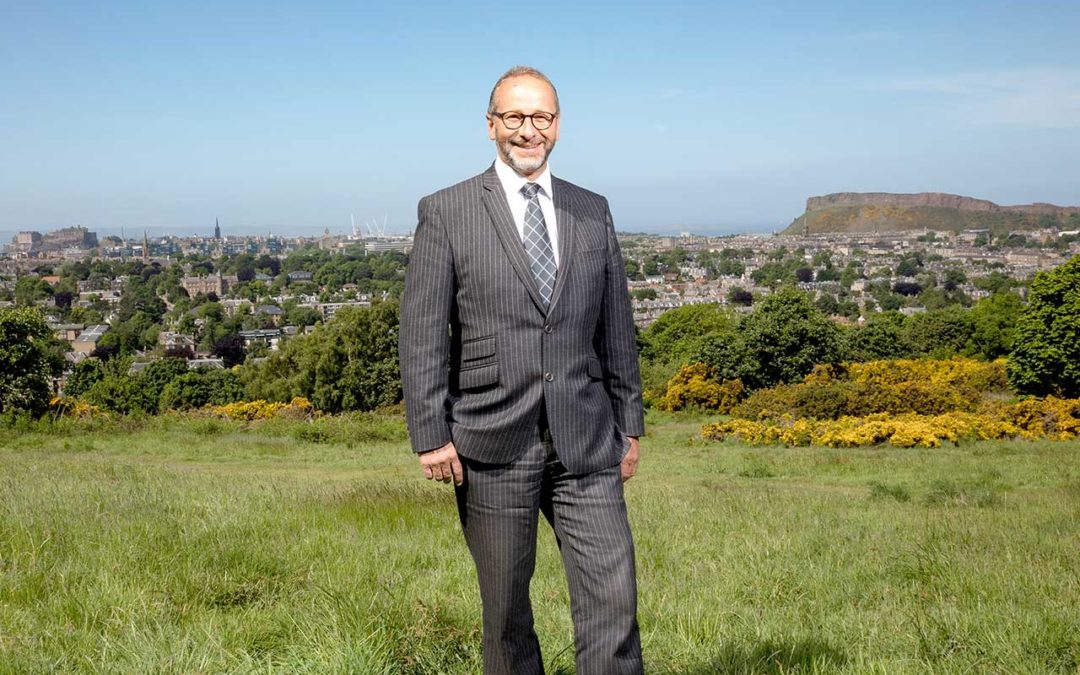Grief just got harder. In this blog, MD James Morris, explains how the new normal post Covid has just raised the stakes for bereaved families up and down the country.
Before the coronavirus pandemic, when I gave talks to schools, curates, hospice and nursing specialists, I often referred to a quote I read from a mother who lost her son to a roadside bomb in Iraq.
“Grief is a very selfish lonely thing. Nobody teaches us how to do it properly. We just have to make up the rules as we go along. Some days are okay, some are bad. And sometimes they’re just awful. But we learn to go on. I’ve had to redefine ‘normal’. Normal will never be the same.”
It’s usually at that moment, you can hear a pin drop.
I’ve been a funeral director for thirty years and as a result, I see grief first hand and the impact it has on families. I frequently see people having to redefine their normal. And, like the mum said, it can be a lonely place.
So how prepared can we be – for ourselves or for the bereaved family and friends we want to support? And how will social distancing and life after a pandemic impact our response?
The truth is, none of us know when we will be when faced with the death of someone we love, or how we will react when that does happen. Which means it’s hard to be prepared. The roadmap for getting through a life changing experience can’t fully be drawn ahead of time.
Even with social distancing, here are my three recommendations for supporting someone you love who is grieving.
- Talk to them frequently. Keep a regular channel of communication open where they can freely explore how they feel whether that’s by phone, zoom or at the door/gate.
- The new normal will vary day to day, so where you can, support them in their activities ensuring you follow their lead. It’s tempting to move them on – we feel it’s healthy to start afresh, but it has to be when they feel strong enough or are motivated to take action.
- Be patient – there’s no way you or they can predict what may help or hinder them as they adjust. It’s actually quite common for those that appear strong and capable to be failing behind closed doors. And those that are doing well will still have bad days so expect setbacks – that’s normal.
In a post covid world, we can also make things easier for our loved ones by taking some action now to help mitigate pain at a future date. Here’s another three suggestions:
- Trigger conversations about death, dying and funerals to find out what our loved ones wishes may be even if it just clarifies if they want buried or cremated, let alone what flowers or music they’d like. It isn’t the worst conversation to have, and often generates a good chat with laughter.
- Discuss what we would like our loved ones to do if we go first – it’s a hard subject to broach but amazingly, it’s more than likely to be light, funny and revealing – quite the opposite of the anticipated conversation you probably have in your mind. It may shape a future “normal” and allow the survivor(s) to carry on with a little less guilt, fear or sadness.
- Make your own plan of wishes for your funeral so that those you leave behind are not burdened with decisions at an already difficult time.
Being prepared for the one inevitability of life isn’t easy but it can make the future easier for those we love.
As funeral directors, we’re often asked for help in preparing future funerals as well as how to help those we love who are hurting. We offer a free ‘Plan of Wishes’ service which includes creating plans and issuing them to loved ones. In some cases, we’ve been invited to dinner to share the plans on the client’s behalf, but we mostly email or post copies the traditional way.
For generations, William Purves has been helping bereaved families in the Lothians. It may be a once-in-a-lifetime need, so lean on our experience when you need it the most.



